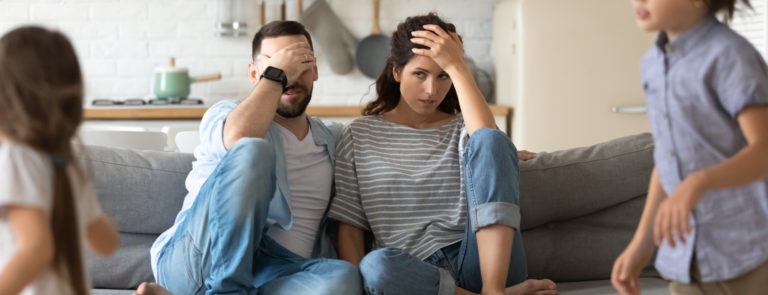10% off £30 OR 15% off £40
Tips on safe sex during summer

With the warm weather and happy vibes on a summer night out, one thing can lead to another and before you know it, you’re having a casual fling. And that’s fine! You do you. But it’s super important to make sure you’re practicing safe sex this summer. We’re exploring the different ways you can have safe sex and tips for being careful during your holidays, below.
Skip to: Importance | Contraception | STIs | Holidays | LGBTQ+ | Sex toys | The pill
What is safe sex and why is it important?
Safe sex or ‘safer’ sex refers to the act of sex in a way that doesn’t include the exchange of semen, vaginal fluids or blood.1
While we’re focusing on staying safe in the bedroom during summer, we have to highlight that practicing safe sex is important all year round. It’s so important because it prevents you from getting most sexually transmitted infections (STIs), HIV and unintended pregnancy.2
Different types of contraception
Certain types of contraception can help you to stay safe when getting frisky. Just remember, while it often falls to women to be responsible for contraception – men should be equally as responsible too. So what kinds of contraception can you use to help you stay safe this summer (and the rest of the year too)? Check them out here:3,4,5
But please be aware that these methods are helpful in reducing your risks, they’re not 100% foolproof and have to be used correctly.
How to reduce the risk of STIs
The best way to reduce the risk of contracting an STI is to use one of the barrier methods we listed above, simple. However, if you’re trying to be extra cautious, there are some things you can do to make condoms more effective. This includes:6
- Using a condom every time you have vaginal, oral or anal sex – as STIs can be passed on even if you don’t come (ejaculate). If you forget once and you’re fine, that doesn’t mean you should stop using them all together.
- Practice using one so that you’re confident about putting one on in the dark or if you’re in a hurry.
- Make sure to put the condom on before sex, rather than during.
- Get all of the air out of the condom before putting it on.
- Don’t unroll the condom before using it.
- Hold onto the condom after sex as you take your penis out.
Getting STI checks
If you are having casual sex or sex with a new partner, the current UK guidelines suggest getting checked once a year – even if you have no symptoms7. Or if you’ve been having condomless sex with male partners, it’s recommended that you get tested for HIV and STIs every three months.8
Don’t be embarrassed about getting tested, as your health and the health of your sexual partners’ is super important. Also, getting tested is simple, straightforward and confidential – plus most infections can be cured.9
If you want to get tested, you’ve got a few options. You can go to your GP for an examination, directly to a GUM clinic or check to see if you can send your own sample to a laboratory by post.10
Sun, sea and safe sex on holiday
Summer romances happen all the time, and while they can be great fun, it’s always worth being prepped so that you’re safe throughout your holidays. We’ve covered the main areas of having safe sex, but here’s what we recommend if you’re jetting off on a summertime adventure:
Taking the pill in different time zones
You should take your pill every 24 hours. But if time zones make it difficult, remember that it’s better to take your pill slightly earlier than later. For example, if a time changes means that you have to take it in the middle of the night, just take it before you go to sleep rather than waiting until the morning.11
LGBTQ+ friendly holiday destinations
Sadly, not everywhere in the world is a safe place if you’re a part of the LGBTQ+ community. So, for carefree travels with the option of a summer romance (or two) it may be worth booking your trip to a LGBTQ+ friendly location. Various holiday providers list these options on their website, including places like:12
- Gran Canaria, Spain
- Puerto Vallarta, Mexico
- Mykonos, Greece
- Barcelona, Spain
- New York, USA
- Palma, Majorca
- Ibiza Town, Ibiza
Can you take sex toys in your hand luggage?
Yep! And the same goes for condoms and lube – providing it’s 100ml or less. But it may be worth choosing a smaller option and removing the batteries if you’re worried about impromptu buzzing… Also, popping your toy in a clear sealable bag means that if your bag does get screened, they can identify it without having to touch it!
However, some countries have rules on bringing sex toys, so remember to do your research before travelling.
The final say
Sexy summer flings are fun and they still can be if you’re being safe. The key takeaways from this article are to always use a method of barrier protection, prep your pills and communicate with your partners before getting down to it. That way, you can be safe when
1. https://www.betterhealth.vic.gov.au/health/healthyliving/safe-sex
2. https://www.health.nsw.gov.au/sexualhealth/Pages/safe-sex.aspx
3. https://patient.info/sexual-health/sexually-transmitted-infections-leaflet/safer-sex
4. https://www.nhs.uk/conditions/contraception/female-condoms/
5. https://www.cdc.gov/condomeffectiveness/Dental-dam-use.html
6. https://patient.info/sexual-health/sexually-transmitted-infections-leaflet/safer-sex
7. https://ukhsa.blog.gov.uk/2022/10/05/getting-tested-for-an-sti-your-guide-to-how-it-works/
8. https://ukhsa.blog.gov.uk/2022/10/05/getting-tested-for-an-sti-your-guide-to-how-it-works/
9. https://www.nhs.uk/live-well/sexual-health/visiting-an-sti-clinic/
11. https://www.travelvax.com.au/latest-news/pill-guide-female-travellers



















